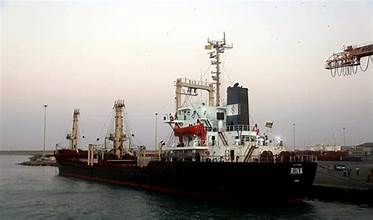Toll on Trade:
Han, the founder of Fuzhou Han Changming International Trade Co Ltd, expressed concern over the disruptions. He stated that these disruptions have completely eroded their already minimal profits. Additionally, the company is grappling with increased shipping-insurance premiums, further impacting their financial situation.
China Vulnerability:
The disruption of a major shipping route highlights China’s export-dependent economy’s vulnerability to supply chain disruptions. Premier Li Qiang, in a Davos speech, emphasized the importance of maintaining “stable and smooth” global supply chains without specifying the Red Sea incident.
Companies like BDI Furniture in the US are turning to factories in Turkey and Vietnam to mitigate disruptions, reflecting a trend of reducing dependence on China amid geopolitical tensions.
Chinas Stakes:
China faces the risk of other companies adopting a de-risking strategy and considering “near-shoring.”
The potential shift in production closer to home could prompt firms to reassess their strategies. Marco Castelli, founder of IC Trade, suggests that if the disruptions are permanent, the entire mechanism may undergo readjustment. Some companies may explore relocating more production to India, which is geographically closer to Europe. Overall, businesses need to reevaluate their operations in response to the changing landscape.
Red Sea Disruptions:
Continued disruptions in the Red Sea would add stress to China’s struggling economy. The country is already dealing with a property crisis, sluggish consumer demand, a declining population, and slow global growth.
Han, whose business depends 40% on trade between Europe and Africa, is urging suppliers and customers to share the extra costs. His company is facing delayed shipping times of several weeks for some orders.
Logistics Challenge:
The disruptions align with a logistical challenge before the Lunar New Year in February. Approximately 300 million Chinese migrant workers take leave during this period, leading to the closure of almost all factories. This results in a rush to ship goods in the weeks preceding the holiday.
Mike Sagan, VP for supply chains at KidKraft in Shenzhen, disclosed that European customers are instructing suppliers to pause shipments. KidKraft, a supplier for major retailers such as Walmart and Target, is grappling with financial concerns as suppliers urgently seek payments.
Sagan expressed worry about larger manufacturers, emphasizing the potential impact on smaller suppliers with slim profit margins. These critical contributors to the supply chain may be among the last to receive payments.
Disrupting Maritime Trade:
Yemen’s Houthi militants are launching attacks on ships in the Red Sea, causing disruptions in maritime trade through the Suez Canal. Some vessels are opting for a longer East-West route around the southern tip of Africa due to the security concerns.
Rerouting vessels from the Red Sea
Rerouting ships around the Cape of Good Hope, rather than using the Suez Canal, adds two weeks to shipping schedules. This extended route reduces global container capacity and disrupts supply chains, making it slower for vessels to return to ports for reloading.
This delay is expected to impact goods scheduled to reach Western shelves in April or May. Logistics companies are already reporting a container shortage at China’s Ningbo-Zhoushan port, one of the world’s busiest, according to BMI, an industry research firm.
The Suez Canal, crucial for China’s westward shipments, handles around 60% of its exports to Europe, notes the Middle East Institute, a Washington-based think tank.
‘HUGE’ IMPACT
Yang Bingben, based in Wenzhou, China, produces industrial valves. A Shanghai client recently reduced an order for 75 valves to 15 due to surging freight costs. This significant cut has a substantial impact on Yang’s business.
Yang expressed the magnitude of the situation, noting that he had already procured raw materials that couldn’t be returned as they were already processed. He likened the situation to receiving an order that results in financial losses.
Downsizing:
Facing reduced orders due to soaring freight costs, Yang in Wenzhou is reconsidering staffing for the year. He expresses concern about guaranteeing salaries for workers paid based on workload, fearing they won’t have enough work to make a living.
In Guangzhou, southern China, Wei Qiongfang, a freight forwarder, notes that suppliers are delaying shipments of lower-value goods. This is putting pressure on manufacturers’ stockpiles.
Uncertain Trade Conditions:
Growing uncertainty in trade conditions hits companies relying on just-in-time deliveries or frequent stock changes the hardest.
A significant issue arises as factories only receive payment upon goods reaching their destination.
Delayed payments lead to challenges in paying suppliers and workers. This adding to the impact on China’s success in the global market is attributed to operating on tiny profit margins, making timely payments critical.
In Dongguan’s Pearl River Delta, Gerhard Flatz of sportswear manufacturer KTC fears that companies with shrinking margins may face closure amid the ongoing logistics crisis.
















